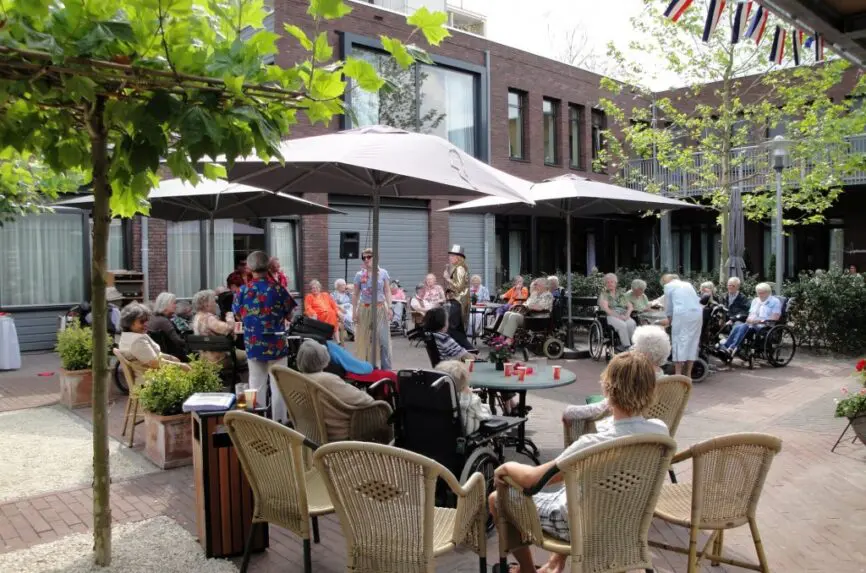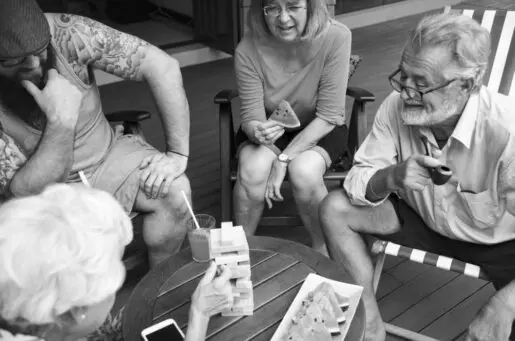Bioethics Forum Essay
What We Talk About When We Talk About Dementia
Imagine yourself living with dementia. Or imagine yourself as a caregiver for a family member with dementia. What would your life be like? What do you hope and fear? Do you think that it should be different – but struggle to describe what would make your life better?
One of the facts about aging societies such as the United States and other wealthy, technologically advanced nations is that millions of people are facing dementia. Whether a person is living with symptoms or is a family caregiver, dementia is part of the complex story of longer lives and smaller families that are the ingredients of the global demographic shift toward population aging.
There is no way to edit out the social presence of dementia. Dementia is often a deeply feared aspect of longer lives – research shows that dementia care makes immense, disproportionate claims on the lives, time, and finances of families compared to other aging-associated, ultimately terminal conditions. The personal and financial costs of dementia care could be reduced through greater public investment in health and social care. But would better services and programs reduce the apprehension that accompanies thoughts of dementia? And how much of our understanding of what it’s like to live with dementia comes not from research or experience, but from what gerontologist Amanda Grenier calls “taken-for-granted assumptions?”
For example, do you picture a person with dementia in terms of disease-related behaviors, rather than as a person whose life has social dimensions? Do you picture this person living in a facility, even though most Americans with symptoms of dementia live in the community? Do you perhaps see this person as “gone,” “not here anymore,” even “dead”? Have you heard that there is a country where “dementia villages” are the norm? (The dementia village is a residential care model developed in the Netherlands, but there is no country where this model is standard.) These taken-for-granted assumptions about dementia, and how dementia care works in this or another society, were brought to you by cultural narratives.
Cultural narratives are the stories, figures of speech, and images that circulate in a society and its professional and social groups, including clinicians, medical educators, and health journalists. Classic works such as George Lakoff and Mark Johnson’s Metaphors We Live By show how narrative shortcuts such as metaphors are indispensable to thinking and meaning-making, and how they reveal moral judgments via associations. Metaphors preserved via stories about human experience are “sticky” because stories are easy to remember and can be satisfying, if sometimes misleading, ways to explain the complexity of human experience.
As bioethics and humanities scholars, we should attend to the cultural narratives attached to the topics we study because sticky ideas have real consequences; they shape how problems are defined and represented. For any of us, our society or community’s common knowledge about dementia will shape how we imagine what a life with dementia is like, and what we think we owe, individually and collectively, to fellow citizens facing dementia. If, for example, we’ve been encouraged to see dementia as a personal or family tragedy, we may not think there’s much we can, or should, do, other than wish that unfortunate family well, and hope that they’ve got a lot of money. We need to analyze our cultural narratives and their real-life consequences, including in policy development, and apply moral imagination to the development of more supportive narratives.
In Living with Dementia: Learning from Cultural Narratives of Aging Societies, a new Hastings Center special report produced with major support from the National Endowment for the Humanities, contributors use the tools of narrative analysis to help citizens of aging societies refresh our taken-for-granted assumptions about dementia. Some essays show how cultural narratives can complicate the lives of people facing dementia: by conveying stigma, or by suggesting that people living with dementia are unreliable narrators of their own experiences and cannot say what would make their lives better, or by assuming the availability of family caregivers without recognizing their burdens and limits. Other essays suggest how to get better narratives in circulation, drawing on insights from different communities and from people living with dementia. For example, research with people with dementia in the UK, Canada, and Germany suggests ways to use data from age-friendly and dementia-friendly programs to strengthen neighborhoods. By informing processes of local community development and advancing the idea of a community as a good place for people of all ages, these findings can also support the recognition of people with dementia as community members and social citizens.
Several essays attend to problems in how dementia is represented in medical and health humanities education and in clinical training and care and discuss ways to repair these problems. The collection draws inspiration from community innovators and researchers who are creating opportunities to help people living with dementia to flourish. We aim for this collection to be as engaging and useful to community groups, program administrators, and everyday citizens as we hope it will be to scholars, educators, and health care practitioners.
In his first column in a new STAT news series on dementia, physician and bioethicist Jason Karlawish writes with passion about the consequences of cultural narratives, including how awareness of stigma (including the persistence of “demented” as a slur) impedes diagnosis; people don’t want dementia, and they also don’t want to be known to have dementia. Karlawish sees hope, through innovations in diagnosis and treatment: “Over time, what we talk about when we talk about dementia and the diseases that cause it is going to change. These new words will have a tremendous collective impact on culture.”
Likewise, there is much we can do to improve the lives of people living with dementia, as fellow citizens of aging societies. Through working to change “what we talk about when we talk about dementia,” we can have an impact on culture, and on what it means to live with dementia, in this aging society. As citizens, we owe this to one another.
Nancy Berlinger, PhD, is a senior research scholar at The Hastings Center for Bioethics. Her research on Bioethics for Aging Societies focuses on ethical and social challenges arising from population aging and the end of life.
Erin Gentry Lamb, PhD, is Carl F. Asseff MD, MBA, JD, Professor in Medical Humanities, Associate Professor of Bioethics, and faculty lead for the humanities pathway in the School of Medicine at Case Western Reserve University. Her research interests include aging and ageism, disability and ableism, death and dying, and pedagogy.
The authors co-directed a 2022 Collaborative Research award by The National Endowment for the Humanities to The Hastings Center to develop this report for publication. Any views, findings, conclusions, or recommendations expressed in this publication do not necessarily represent those of the NEH. Additional funding was provided by The Hastings Center through The Gil Omenn and Martha Darling Fund for Trusted and Trustworthy Scientific Innovation.
[Photo: The Hogeweyk, a “dementia village” in the Netherlands]













